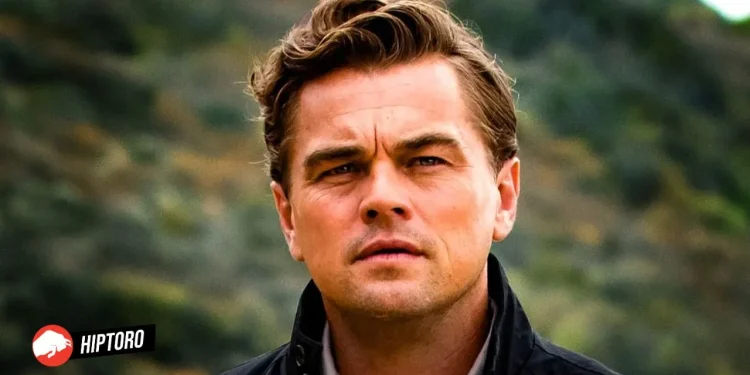Leonardo DiCaprio stands as a colossus in the realm of contemporary cinema, not merely for his enviable filmography but for the depth, diversity, and dedication he brings to each role. Born on November 11, 1974, in Los Angeles, California, DiCaprio has traversed a long and illustrious path from a child actor in television commercials and series to one of Hollywood’s most formidable talents. His career is a testament to his range and skill, encapsulating roles that have etched themselves into the cultural zeitgeist. This article aims to delve into the essence of Leonardo DiCaprio, exploring his journey, the milestones of his career, and the impact he has had on film and society.
Leonardo DiCaprio’s early years in cinema were marked by performances that already hinted at the breadth of his talent. His role in “This Boy’s Life” (1993) alongside Robert De Niro showcased a young actor capable of holding his own against seasoned veterans, portraying the complexities of a troubled youth with sensitivity and depth. It was, however, his heartrending performance as Arnie Grape in “What’s Eating Gilbert Grape” (1993) that earned him his first Academy Award nomination, an impressive feat for an actor of his age. This role underscored DiCaprio’s ability to immerse himself fully into his characters, a trait that has become a hallmark of his career.
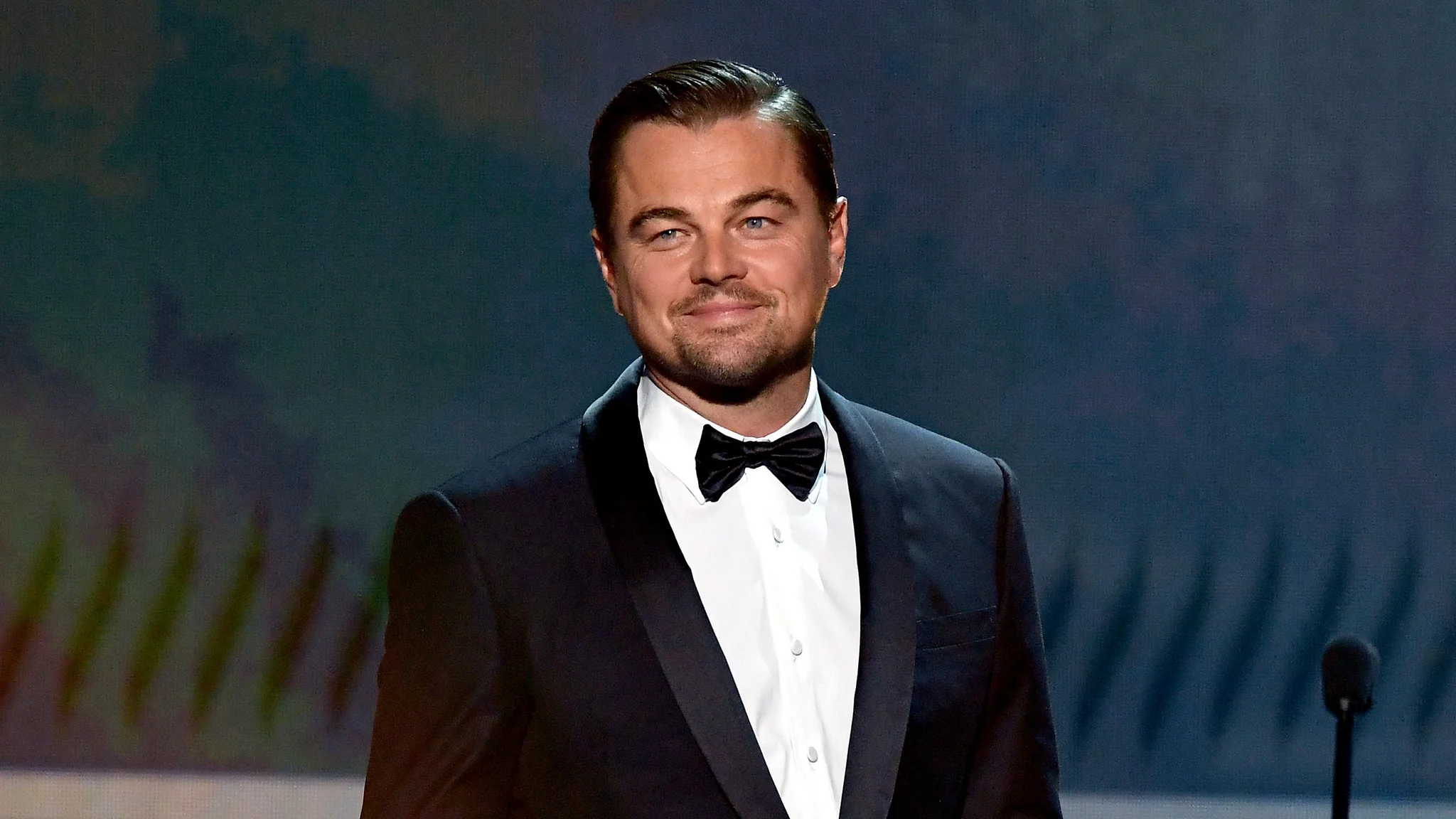
The mid to late 1990s saw Leonardo DiCaprio’s star ascend meteorically, culminating in his role as Jack Dawson in James Cameron’s “Titanic” (1997). The film’s unprecedented success catapulted DiCaprio into global superstardom, solidifying his place as a leading man in Hollywood. Yet, rather than rest on the laurels of this commercial success, DiCaprio embarked on a series of choices that would define his career as one marked by daring and versatility. From the dark and complex realms of “The Beach” (2000) and “Don’s Plum” (2001) to his dynamic portrayal of con artist Frank Abagnale Jr. in “Catch Me If You Can” (2002), DiCaprio displayed a relentless pursuit of challenging roles.
The collaboration between Leonardo DiCaprio and director Martin Scorsese has been particularly fruitful, beginning with “Gangs of New York” (2002) and spanning films like “The Aviator” (2004), “The Departed” (2006), “Shutter Island” (2010), and “The Wolf of Wall Street” (2013). These projects not only allowed DiCaprio to explore a range of characters and narratives but also to hone his craft under the guidance of one of cinema’s greatest directors. Each role, whether portraying the ambitious but troubled Howard Hughes in “The Aviator” or the morally ambiguous Jordan Belfort in “The Wolf of Wall Street,” Leonardo DiCaprio brought a level of commitment and intensity that elevated the material and captivated audiences.
Leonardo DiCaprio’s dedication to his roles often involves significant physical and emotional preparation, as seen in his Oscar-winning performance in “The Revenant” (2015). Portraying frontiersman Hugh Glass, DiCaprio endured grueling conditions, contributing to a portrayal that is raw, powerful, and deeply human. This role, among others, highlights DiCaprio’s willingness to push the boundaries of his craft, seeking authenticity and depth in every performance.
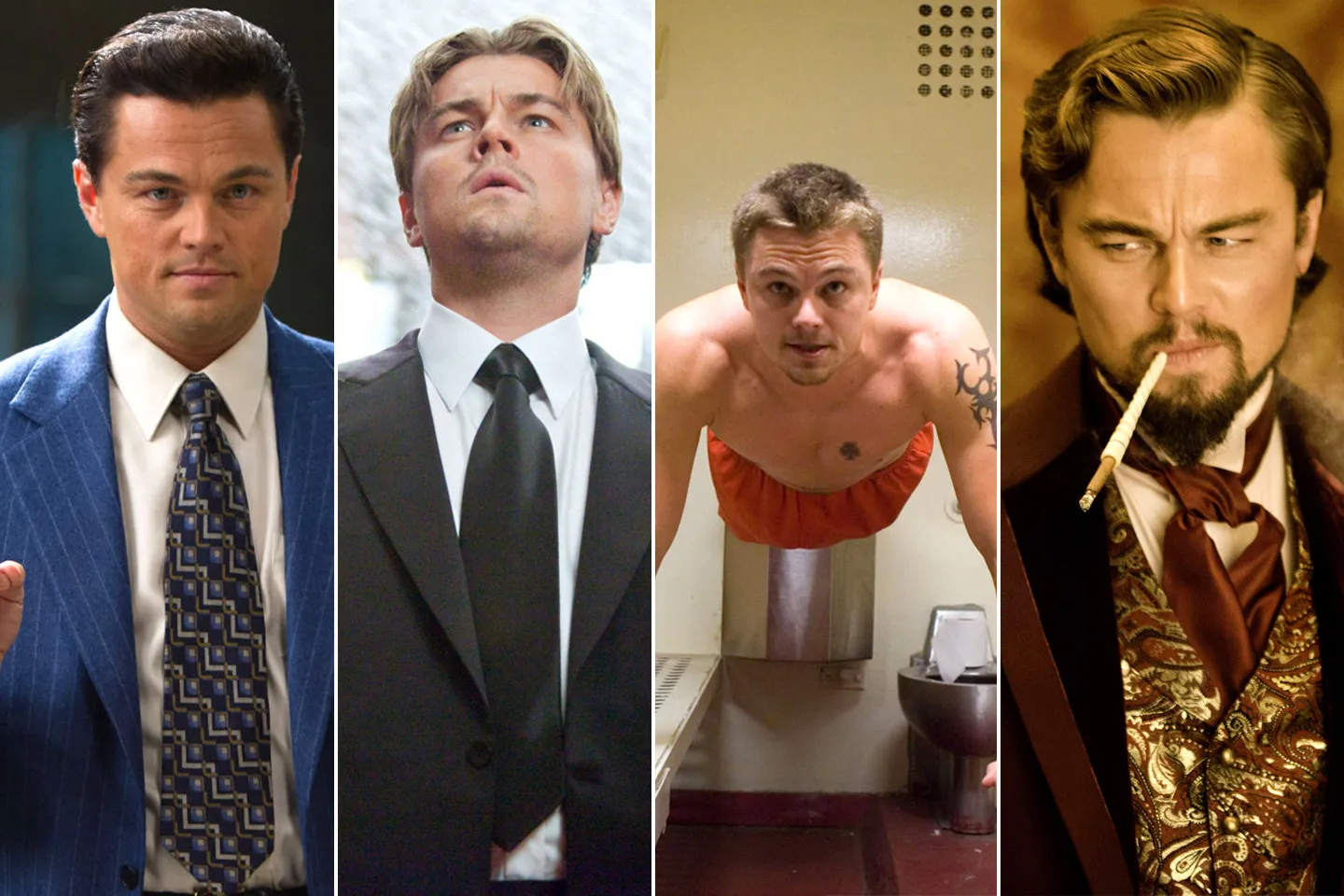
Beyond his cinematic achievements, Leonardo DiCaprio is also known for his environmental activism. His foundation, established in 1998, focuses on global warming, preserving Earth’s biodiversity, and supporting renewable energy. DiCaprio has leveraged his celebrity to bring attention to these critical issues, producing documentaries like “The 11th Hour” (2007) and speaking at significant global forums. This aspect of his life reflects a commitment to leveraging his influence for the greater good, an endeavor as commendable as his artistic contributions.
In examining Leonardo DiCaprio’s career, one cannot help but be struck by the diversity of his roles and the depth of his performances. From historical figures to fictional characters grappling with internal and external conflicts, DiCaprio has displayed a profound ability to bring complexity and humanity to his roles. His career choices reflect a deliberate avoidance of typecasting, instead embracing roles that challenge him and engage with significant themes and narratives.
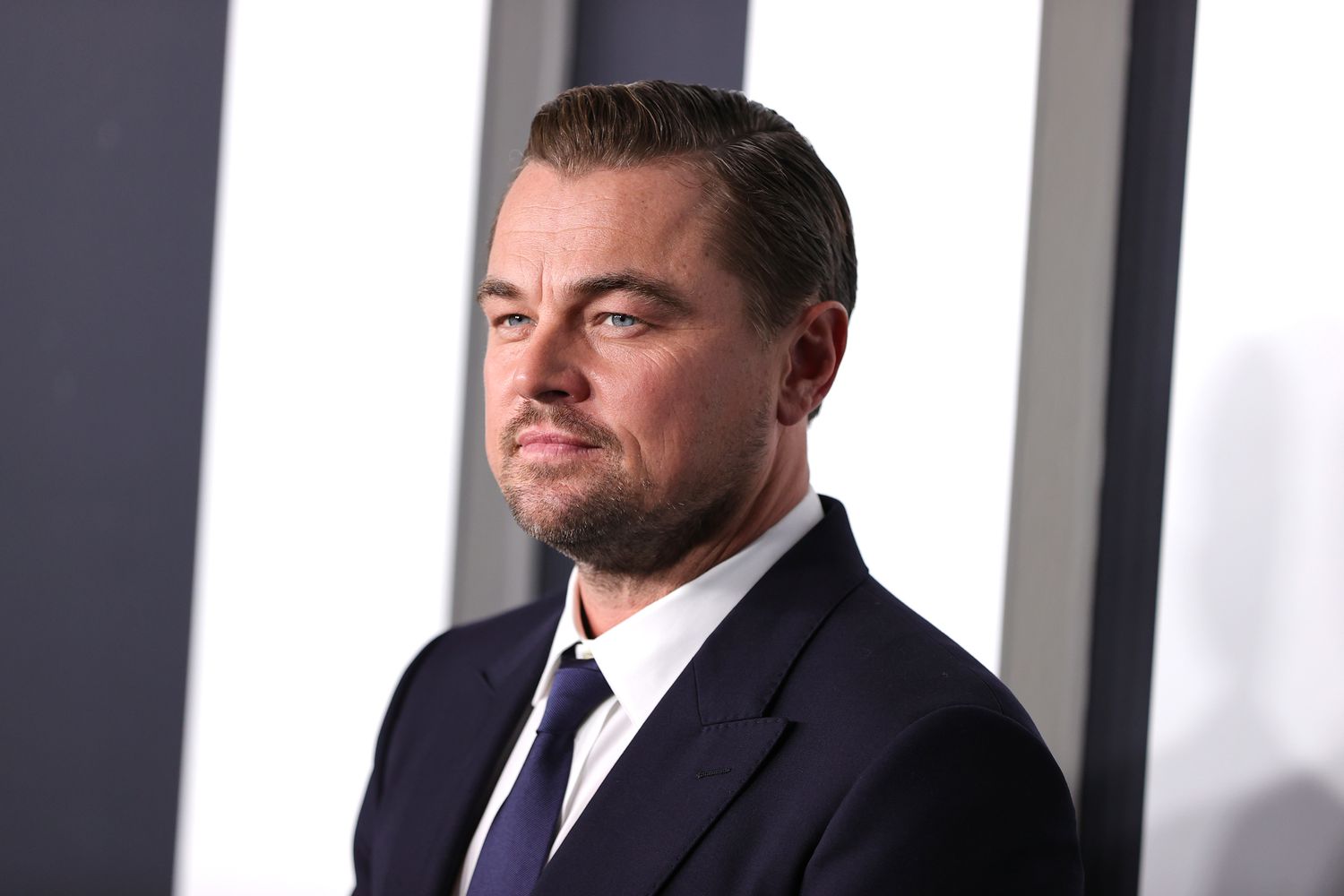
Leonardo DiCaprio’s impact on cinema extends beyond his performances. He has produced several films, further demonstrating his understanding of the film industry and his commitment to storytelling. His production company, Appian Way Productions, has been involved in creating films that tackle important social and environmental themes, aligning with his activism.
As we look to the future, Leonardo DiCaprio continues to be a force in Hollywood, with a keen eye for projects that challenge conventional storytelling. His journey from a child actor to one of the most respected figures in the industry is a testament to his talent, work ethic, and dedication to his craft. DiCaprio’s legacy is not merely in the roles he has portrayed. Still, the depth of emotion and humanity he brings to each performance makes him a pivotal figure in the landscape of modern cinema.
Top 10 Best Movies of Leonardo DiCaprio
1. “Inception” (2010): A Masterpiece of Modern Cinema
“Inception,” directed by Christopher Nolan, stands as a testament to Leonardo DiCaprio’s ability to anchor complex narratives with his compelling performances. As Dom Cobb, a skilled thief who steals secrets from deep within the subconscious during the dream state, DiCaprio delivers a nuanced portrayal of a man haunted by his past and desperate for redemption. The film’s intricate plot, groundbreaking visual effects, and emotional depth make it a standout in DiCaprio’s filmography and a landmark in 21st-century cinema.
Leonardo DiCaprio’s Cobb is a character-driven by the dual motives of achieving the impossible and reconciling with his guilt and loss. The actor’s ability to convey deep emotional turmoil, coupled with his character’s technical prowess in navigating the layers of dreams, showcases DiCaprio’s range and commitment to complex roles. “Inception” is not only a visual and narrative spectacle but also a profound exploration of themes such as grief, guilt, and the nature of reality, anchored by Leonardo DiCaprio’s performance.
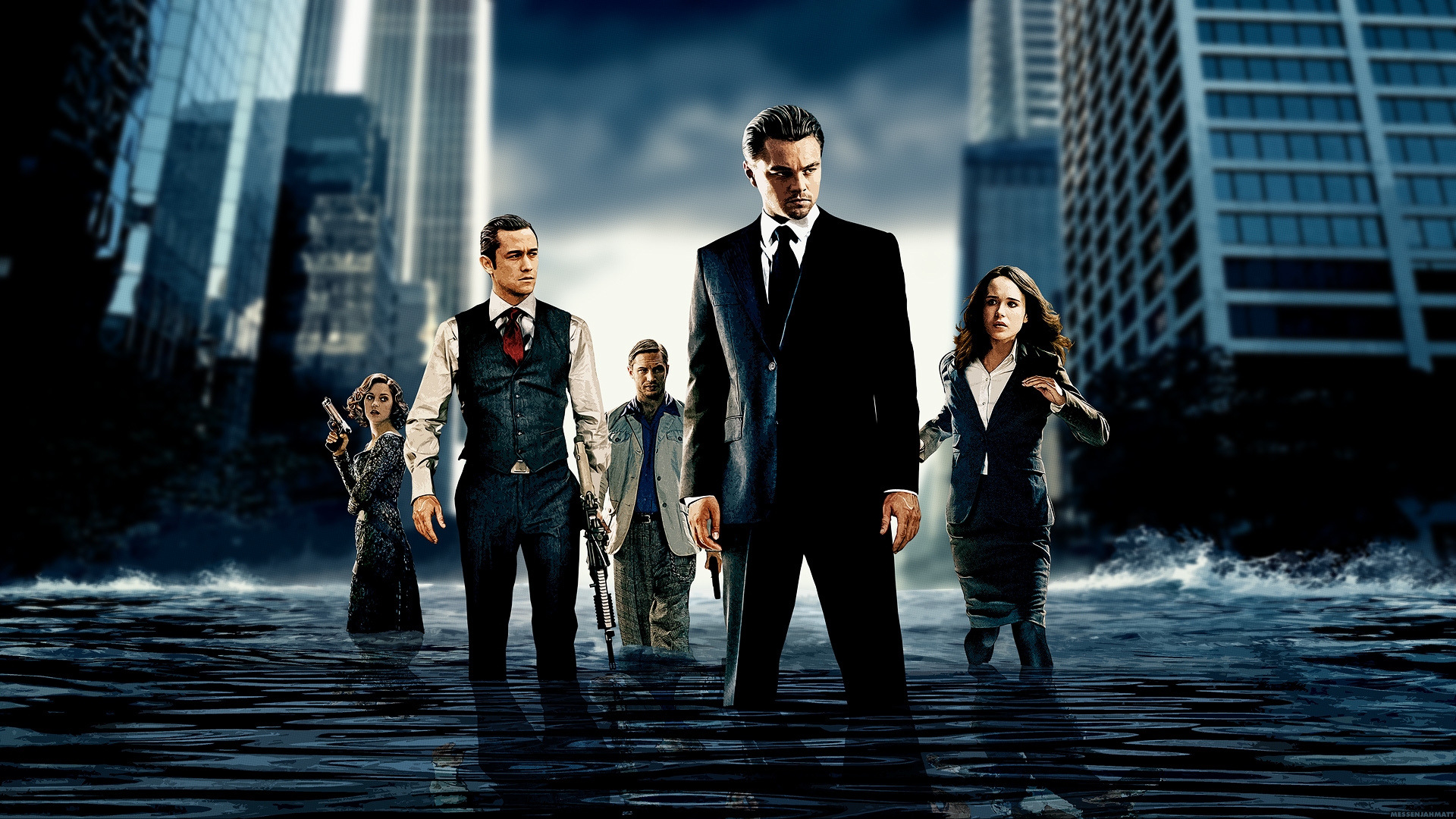
The film’s critical and commercial success can be attributed to its innovative storytelling, visual mastery, and the ensemble cast’s performances, with DiCaprio leading the charge. “Inception” challenged audiences worldwide to question their perceptions of reality, making it a cultural phenomenon that continues to be discussed and analyzed. Leonardo DiCaprio’s role in this film solidified his status as one of the most versatile actors of his generation, capable of carrying a blockbuster that appeals to both the intellect and the emotions.
“Inception” received numerous accolades, including four Academy Awards, and was praised for its originality, depth, and cinematic achievements. DiCaprio’s portrayal of Cobb is a key factor in the film’s success, offering a human connection to the extraordinary events unfolding on screen. His ability to navigate the complexities of Nolan’s script while delivering a performance that is both gripping and emotionally resonant demonstrates his skill as an actor and his importance to the film’s overall impact.

As we delve further into Leonardo DiCaprio’s top movies, “Inception” serves as a brilliant starting point, showcasing his talent in a film that combines high-concept storytelling with profound human emotions. This exploration offers insight into DiCaprio’s ability to select and excel in roles that challenge both himself and the audience, making each film a memorable experience.
2. “Titanic” (1997): A Timeless Epic of Love and Tragedy
James Cameron’s “Titanic” is not only one of the most iconic films in Leonardo DiCaprio’s illustrious career but also a monumental achievement in cinema history. Released in 1997, this epic romance and disaster film tells the tragic story of the RMS Titanic’s ill-fated maiden voyage, while at its heart lies a poignant love story between Jack Dawson ( Leonardo DiCaprio) and Rose DeWitt Bukater (Kate Winslet). DiCaprio’s portrayal of Jack, a penniless artist who wins a ticket aboard the Titanic, showcases his ability to embody characters with a deep sense of empathy and charisma.
Leonardo DiCaprio’s chemistry with Winslet is palpable, bringing to life a love story that transcends class boundaries and the looming catastrophe. His performance as Jack Dawson—a character brimming with optimism, creativity, and a zest for life—resonated with audiences around the globe, making “Titanic” one of the highest-grossing films of all time. DiCaprio’s ability to navigate the emotional depth of his character, from the exhilarating highs of love to the heart-wrenching lows of the Titanic’s sinking, solidified his status as a leading man in Hollywood.
The film’s success can be attributed to its groundbreaking visual effects, meticulously recreated sets and James Cameron’s visionary direction. However, it’s the human story at its core—anchored by Leonardo DiCaprio’s and Winslet’s performances—that imbues “Titanic” with its enduring appeal. The movie not only captures the imagination with its historical grandeur but also touches the heart with its intimate portrayal of human resilience, love, and loss.
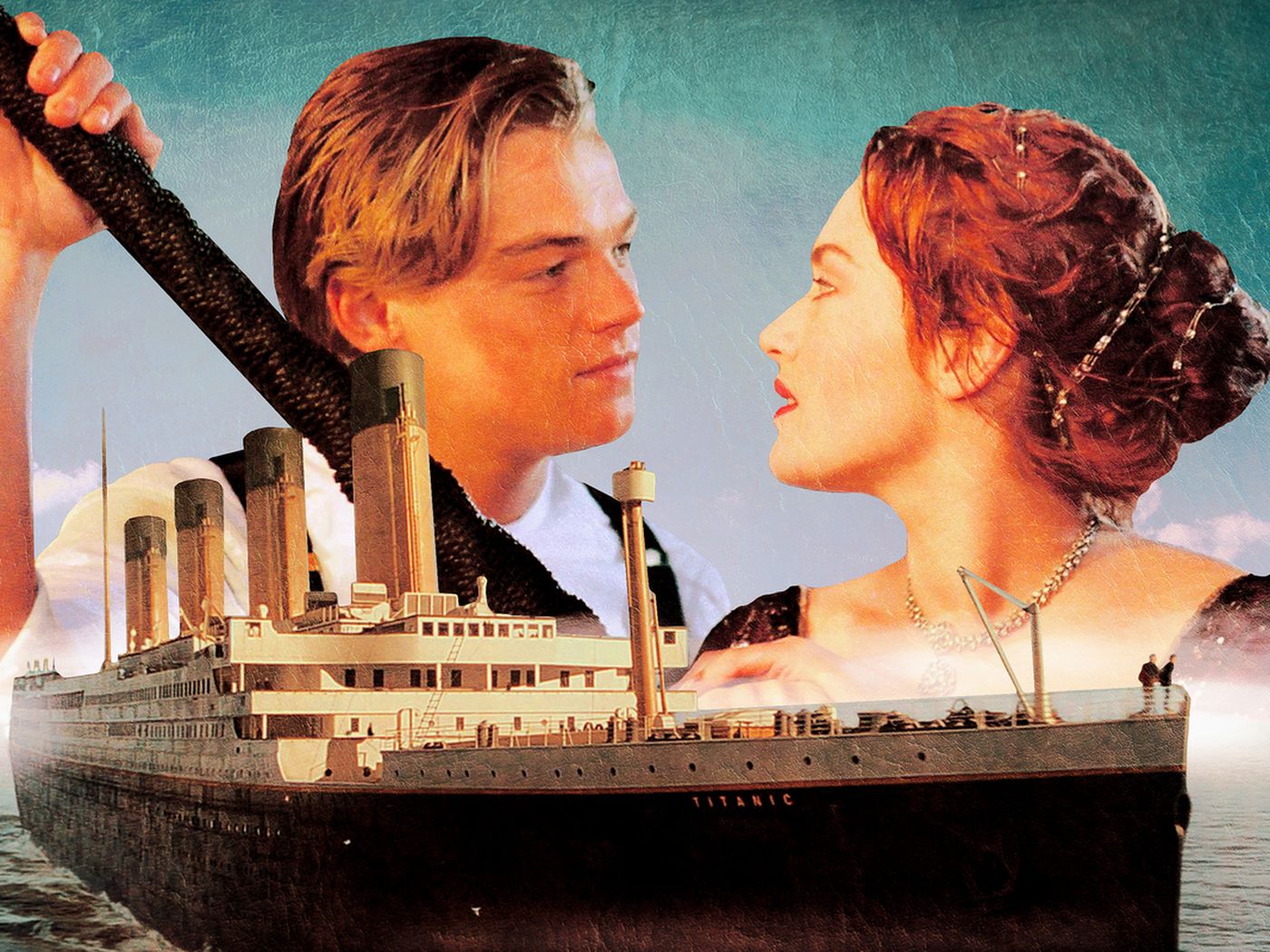
“Titanic” garnered critical acclaim and a slew of awards, including 11 Academy Awards, tying it for the most Oscars won by a single film. DiCaprio’s role was pivotal in the film’s emotional impact, showcasing his ability to connect with audiences on a profound level. His portrayal of Jack Dawson is a testament to Leonardo DiCaprio’s versatility and commitment to his craft, demonstrating his capacity to take on challenging roles in diverse genres.
Beyond its achievements in storytelling and production, “Titanic” had a significant cultural impact, contributing to DiCaprio’s rise as a global superstar. The film’s legacy continues, not only as a cinematic masterpiece but also as a benchmark for romantic epics. DiCaprio’s performance in “Titanic” remains one of his most beloved roles, epitomizing the actor’s knack for bringing depth and humanity to his characters.

As we continue to explore Leonardo DiCaprio’s top movies, “Titanic” stands as a monumental film that combines technical brilliance with a compelling narrative and unforgettable performances. It highlights DiCaprio’s ability to engage audiences with characters that resonate on an emotional level, further establishing his position as one of the most talented actors of his generation.
3. “The Revenant” (2015): A Harrowing Tale of Survival and Vengeance
Leonardo DiCaprio’s performance in “The Revenant,” directed by Alejandro G. Iñárritu, is a testament to his unparalleled commitment to his craft. In this 2015 epic survival drama, DiCaprio takes on the role of Hugh Glass, a frontiersman on a fur trading expedition in the 1820s, who is left for dead after being mauled by a bear. What follows is a relentless quest for survival and vengeance against all odds. DiCaprio’s portrayal of Glass is raw, visceral, and utterly compelling, earning him his first Academy Award for Best Actor.
“The Revenant” is renowned for its stunning cinematography, capturing the unforgiving beauty of the wilderness and Iñárritu’s direction, which emphasizes authenticity and realism. DiCaprio’s performance is at the heart of the film’s impact; his physical transformation and dedication to depicting Glass’s grueling journey is nothing short of remarkable. The actor underwent extreme conditions, from sub-zero temperatures to eating raw bison liver, showcasing his willingness to push his boundaries for the sake of his art.
Leonardo DiCaprio’s portrayal of Hugh Glass is a deeply emotional and physically demanding role, highlighting his character’s indomitable will to survive and seek justice for the murder of his son. The performance is a masterclass in acting, with minimal dialogue and relying heavily on physical expression and the conveyance of raw emotion. “The Revenant” explores themes of revenge, resilience, and the human spirit’s capacity to endure, with DiCaprio’s performance anchoring the film’s philosophical and existential questions.
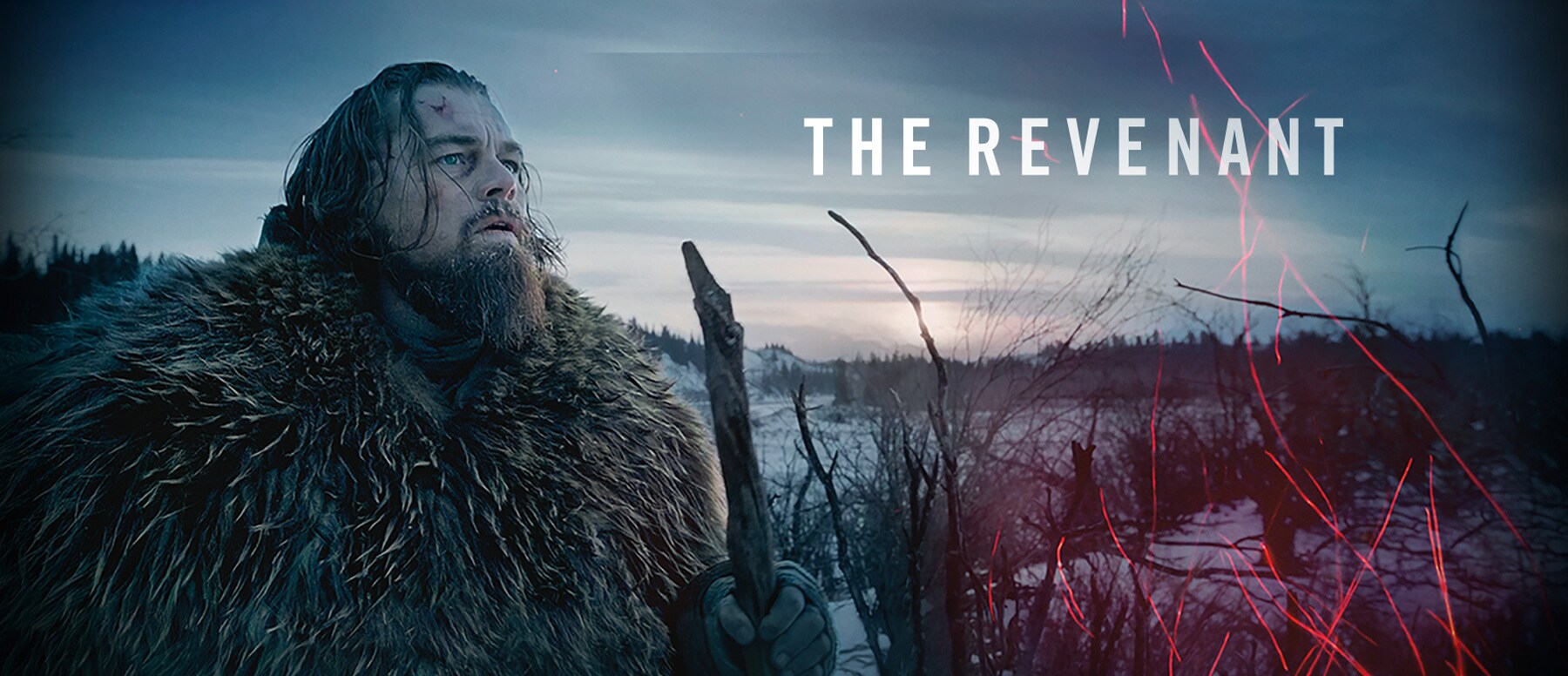
The film’s critical and commercial success is a reflection of its ambitious scope, technical prowess, and the power of its performances. “The Revenant” received widespread acclaim for its direction, cinematography, and, most notably, DiCaprio’s acting. The actor’s dedication to the role and his ability to convey the depth of Glass’s pain, loss, and relentless determination resonate deeply with audiences, making it one of his most memorable and celebrated performances.
“The Revenant” is more than just a survival story; it’s a visually stunning, emotionally charged exploration of the human condition. DiCaprio’s portrayal of Hugh Glass is a landmark achievement in his career, demonstrating his ability to immerse himself fully into a character and deliver performances that are both captivating and profoundly moving. This film not only solidified DiCaprio’s status as one of the finest actors of his generation but also showcased his commitment to challenging himself and exploring the depths of the human spirit.

As we delve further into the top movies of Leonardo DiCaprio’s career, “The Revenant” stands as a powerful testament to his artistic dedication and the intense physical and emotional depths he is willing to explore in his roles. His performance in “The Revenant” is a pivotal moment in his filmography, marking a culmination of his talent, hard work, and the pursuit of cinematic excellence.
4. “The Departed” (2006): A Tense Undercover Saga
In 2006, Martin Scorsese’s “The Departed” further solidified Leonardo DiCaprio’s status as one of Hollywood’s most versatile actors. This gritty crime thriller, a remake of the Hong Kong film “Infernal Affairs,” delves into the lives of two men on opposite sides of the law, deeply undercover in the Massachusetts State Police and the Irish mob. DiCaprio stars as Billy Costigan, a police officer who infiltrates the mob, delivering a performance that is intense, vulnerable, and utterly captivating.
“The Departed” is celebrated for its complex narrative, moral ambiguity, and stellar ensemble cast, including Matt Damon, Jack Nicholson, and Mark Wahlberg. However, it’s DiCaprio’s portrayal of Costigan that stands as the emotional core of the film. His character’s journey into the underworld of organized crime, where he must maintain his cover while grappling with his own identity and morality, showcases DiCaprio’s ability to navigate psychological depth and tension with remarkable skill.
DiCaprio’s performance is a balancing act of intensity and subtlety, portraying a man whose life is in constant jeopardy, leading to a palpable sense of paranoia and isolation. The actor’s commitment to the role is evident in every scene, whether he’s conveying raw fear, desperation, or a fleeting moment of relief. “The Departed” not only offered DiCaprio a role that pushed him to emotional extremes but also allowed him to explore the themes of loyalty, identity, and sacrifice.
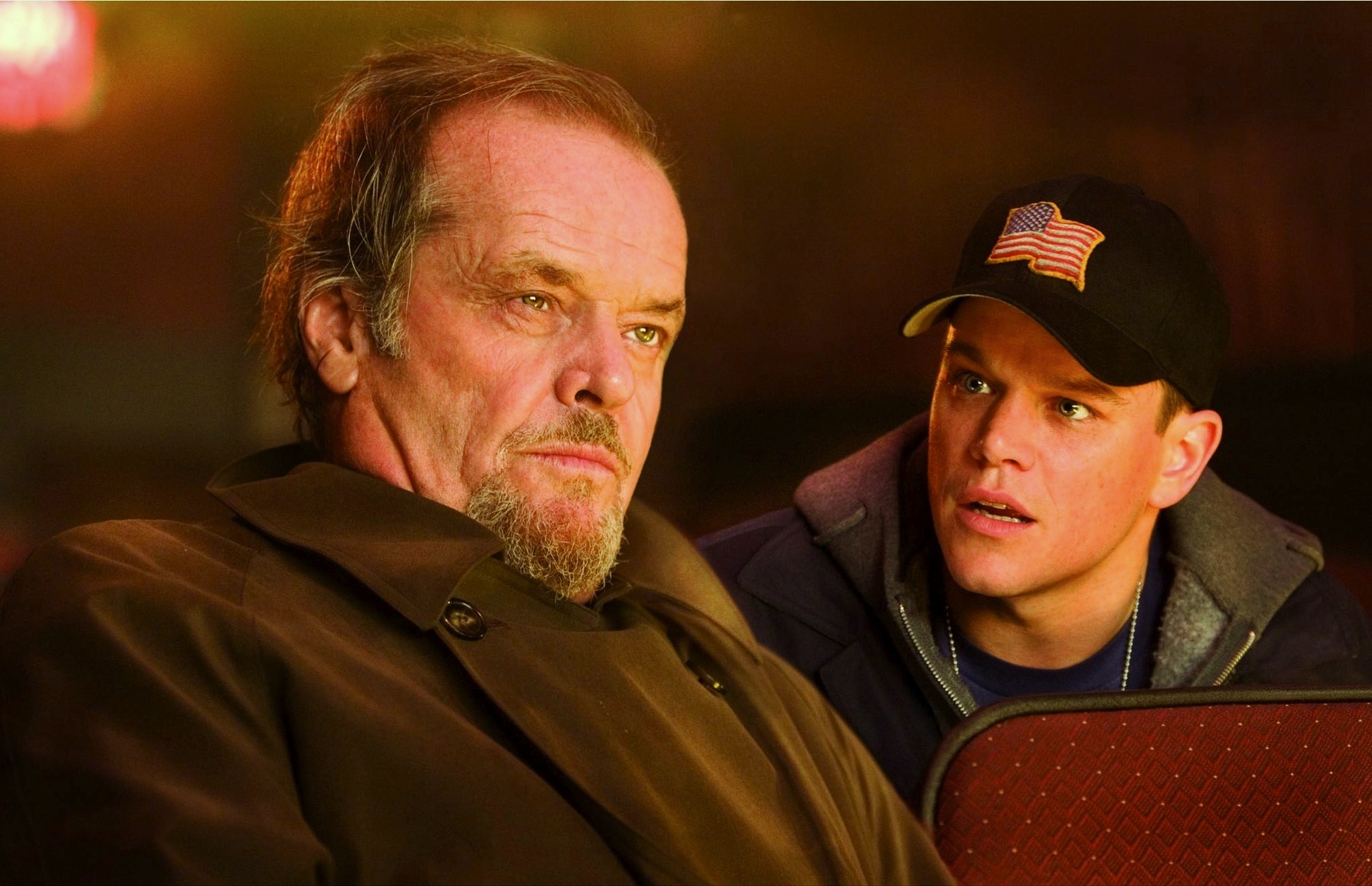
The film received critical acclaim and was a commercial success, earning Scorsese his first Academy Award for Best Director. “The Departed” also won Best Picture, highlighting its impact and the collective achievements of its cast and crew. DiCaprio’s performance was praised for its complexity and intensity, earning him several nominations and cementing his reputation as an actor capable of carrying a film both commercially and artistically.
“The Departed” represents a significant moment in DiCaprio’s career, showcasing his growth as an actor and his continued collaboration with Scorsese. Their partnership has produced some of the most memorable films in recent cinema, with “The Departed” being a prime example of their synergy. DiCaprio’s role in the film is a testament to his versatility, depth, and ability to convey nuanced emotions, making it one of his most powerful performances.

As we explore Leonardo DiCaprio’s top movies, “The Departed” stands out not only as a high-stakes crime drama but also as a showcase for DiCaprio’s talent for embodying complex characters. His portrayal of Billy Costigan is a masterful display of emotional range, contributing to the film’s enduring legacy as a modern classic.
5. “Catch Me If You Can” (2002): A Captivating Game of Cat and Mouse
In 2002, Leonardo DiCaprio starred in “Catch Me If You Can,” a film directed by Steven Spielberg that chronicles the true story of Frank Abagnale Jr., one of the most notorious con artists in history. DiCaprio’s portrayal of Abagnale is a tour de force, showcasing his ability to blend charm, wit, and vulnerability in a performance that is both captivating and deeply humanizing. This role stands out in DiCaprio’s filmography for its departure from the intense dramas he is often associated with, displaying his versatility and range as an actor.
“Catch Me If You Can” is set in the 1960s and follows the teenage Abagnale, who, after his parents’ divorce, runs away from home and begins an astonishing spree of fraud across the United States. DiCaprio navigates the character’s complex psyche with ease, presenting a young man who is simultaneously confident and desperate, driven by the desire to reunite his family. His performance captures the essence of Abagnale’s cunning and intelligence but also his underlying vulnerability and longing for acceptance.
The dynamic between DiCaprio’s Abagnale and Tom Hanks, who plays Carl Hanratty, the FBI agent relentlessly pursuing him, is central to the film’s emotional depth. DiCaprio brings a sense of playfulness to the role, which contrasts beautifully with Hanks’s more serious demeanor, creating a compelling cat-and-mouse game that serves as the film’s driving force. Their interactions are filled with tension, humor, and a growing mutual respect that adds layers to the narrative.
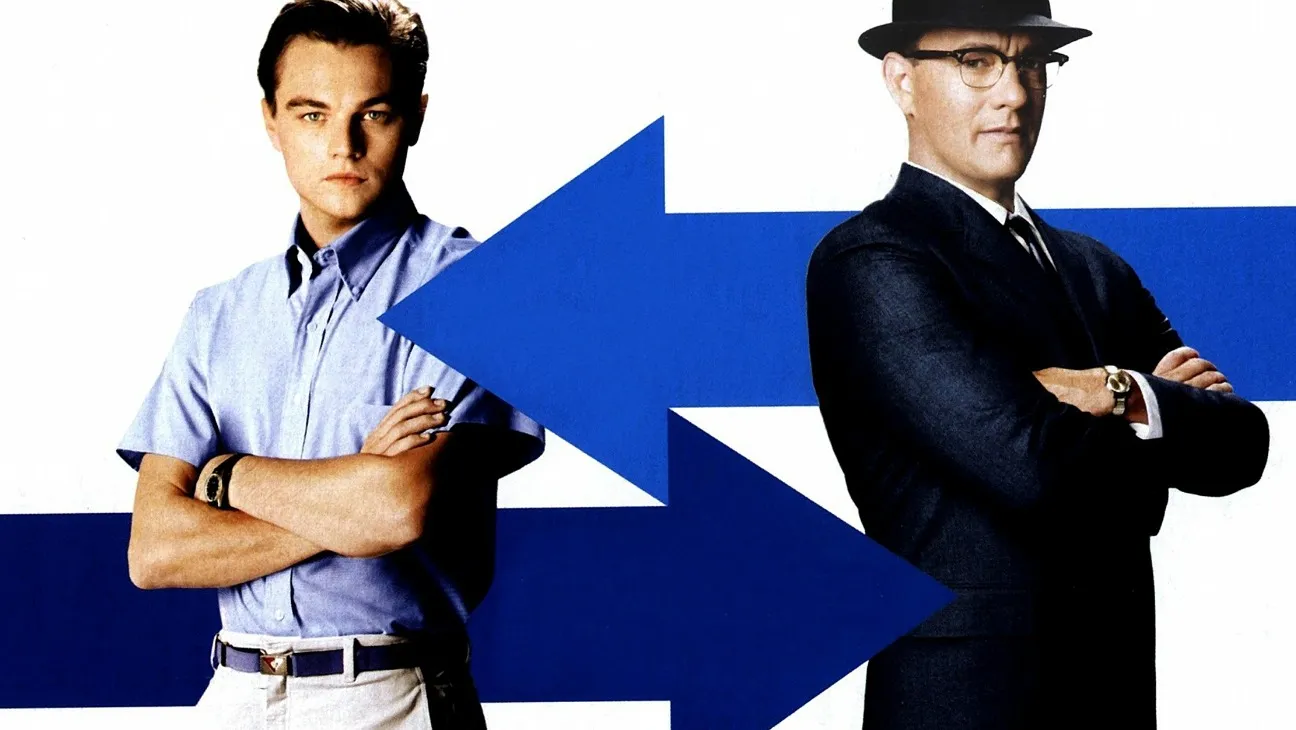
DiCaprio’s ability to embody such a complex character, making him likable despite his deceptive actions, is a testament to his skill as an actor. He captures the audience’s sympathy, making them root for Abagnale even as his schemes become increasingly audacious. The film explores themes of identity, family, and redemption, with DiCaprio’s performance grounding the story in emotional authenticity.
“Catch Me If You Can” received critical acclaim and was a commercial success, further establishing DiCaprio as one of his generation’s most talented and versatile actors. The film is celebrated for Spielberg’s direction, its engaging screenplay, and the chemistry between its leads, but it’s DiCaprio’s portrayal of Frank Abagnale Jr. that truly makes it memorable. He delivers a performance that is both entertaining and thought-provoking, highlighting his ability to take on diverse roles and breathe life into complex characters.

As we delve deeper into Leonardo DiCaprio’s top movies, “Catch Me If You Can” stands as a testament to his dynamic range and charismatic screen presence. His role in the film not only provided entertainment but also offered insight into the human desire for connection and the lengths to which one might go to achieve it.
6. “Shutter Island” (2010): A Psychological Thriller of the Highest Order
“Shutter Island,” directed by Martin Scorsese, represents another significant milestone in Leonardo DiCaprio’s career, showcasing his exceptional talent in embodying complex characters entangled in psychological turmoil. In this 2010 thriller, DiCaprio plays Teddy Daniels, a U.S. Marshal investigating a mysterious disappearance at a psychiatric facility on Shutter Island. As the investigation unfolds, the line between reality and delusion blurs, plunging Teddy—and the audience—into a dark, unsettling world where nothing is as it seems.
DiCaprio’s portrayal of Teddy Daniels is a masterclass in psychological acting. He navigates the character’s descent into paranoia and madness with precision and depth, capturing the essence of a man consumed by his past traumas and present fears. The intensity DiCaprio brings to the role is palpable, driving the film’s suspenseful atmosphere and keeping viewers on the edge of their seats. His performance is a compelling exploration of grief, guilt, and the fragility of the human mind, showcasing his ability to delve into the psyche of his characters.
“Shutter Island” is visually stunning, with Scorsese’s direction and Robert Richardson’s cinematography creating a haunting, immersive world. The film’s haunting score, composed by Robbie Robertson, further enhances the eerie, suspenseful mood. However, it is DiCaprio’s riveting performance that anchors the film’s emotional core and narrative complexity. His portrayal of Teddy’s unraveling is both sympathetic and disturbing, making “Shutter Island” a profoundly unsettling and memorable experience.
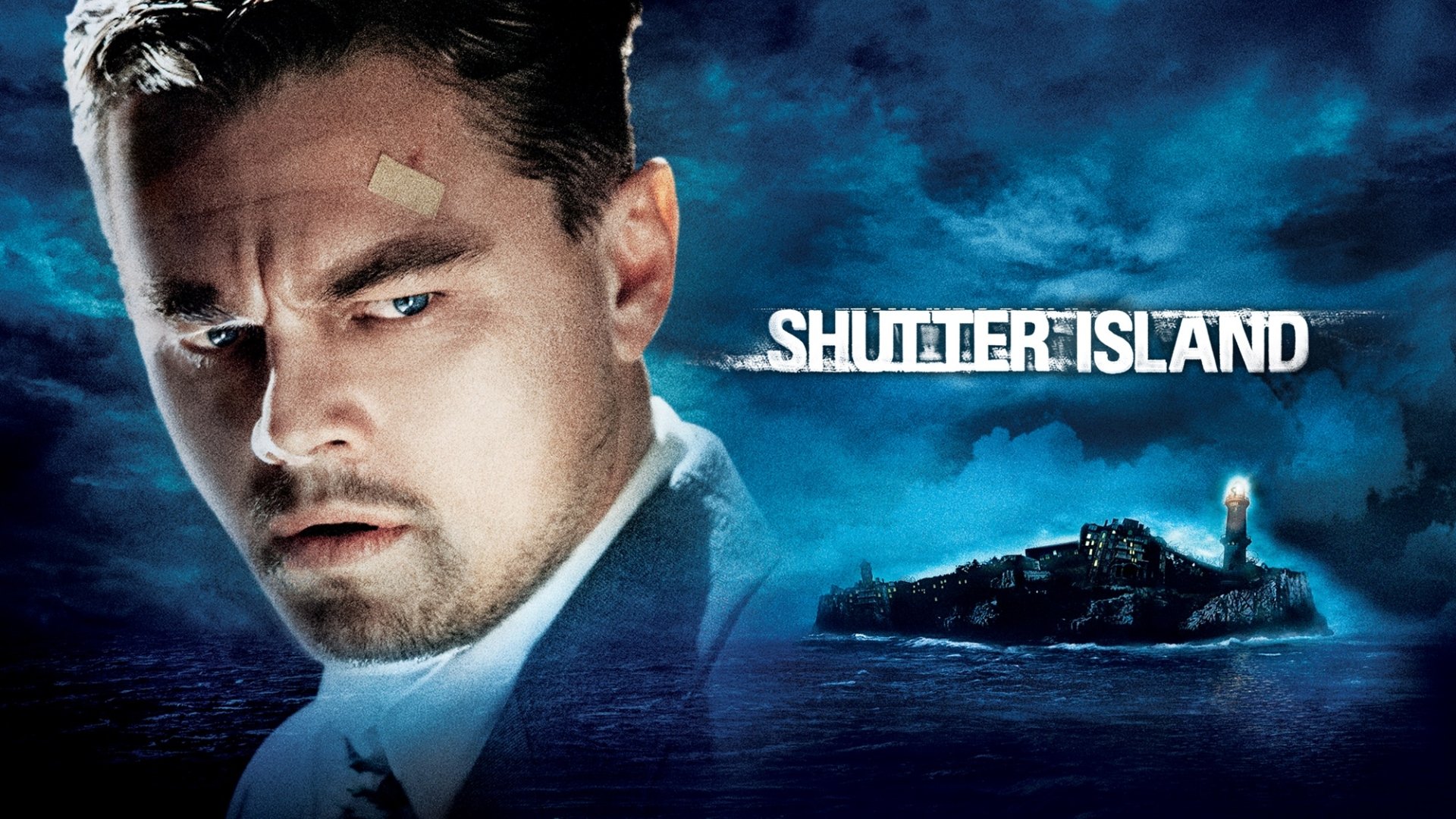
The film challenges viewers to question the nature of reality, sanity, and the power of the mind to construct and distort our perceptions. DiCaprio’s Teddy Daniels is at the center of this exploration, embodying the themes of loss, memory, and identity that permeate the story. His journey is a psychological odyssey that forces audiences to confront their notions of truth and madness.
“Shutter Island” was both a critical and commercial success, further cementing the DiCaprio-Scorsese partnership as one of the most dynamic and productive in contemporary cinema. The film’s ambiguous ending and psychological depth have sparked much discussion and analysis, with DiCaprio’s performance at the heart of its enduring appeal. His ability to convey complex emotions and psychological states with authenticity and intensity is unparalleled, making “Shutter Island” a standout film in his diverse portfolio.

As we continue to explore Leonardo DiCaprio’s top movies, “Shutter Island” exemplifies his skill in choosing roles that challenge conventional storytelling and highlight his range as an actor. His performance in this film is a powerful reminder of his capacity to engage audiences deeply and leave a lasting impact on the cinematic landscape.
7. “Django Unchained” (2012): A Bold Exploration of Revenge and Freedom
“Django Unchained,” directed by Quentin Tarantino, marked a significant departure for Leonardo DiCaprio, showcasing his versatility as an actor in one of his most memorable and daring roles. In this 2012 film, DiCaprio plays Calvin Candie, a malevolent plantation owner in the antebellum South who takes pleasure in the brutal exploitation of slaves. This role is a stark contrast to the characters DiCaprio is typically associated with, demonstrating his ability to delve into the psyche of deeply flawed and morally corrupt individuals.
DiCaprio’s portrayal of Candie is chilling and repugnant, yet undeniably compelling. He embodies the character’s sadistic nature and superficial charm with such conviction that it becomes a pivotal element of the film’s critique of slavery and racism. DiCaprio’s performance is a testament to his commitment to challenging himself and embracing roles that push him out of his comfort zone. Candie is a character devoid of redeeming qualities, yet DiCaprio’s nuanced performance adds layers to his villainy, making him a character that audiences love to hate.
“Django Unchained” is a blend of spaghetti western and historical epic, infused with Tarantino’s signature style of sharp dialogue, graphic violence, and dark humor. The film explores themes of revenge, justice, and the pursuit of freedom, with Jamie Foxx’s Django and Christoph Waltz’s Dr. King Schultz embarking on a mission to rescue Django’s wife from Candie’s clutches. DiCaprio’s role, though not the protagonist, is crucial in heightening the film’s tension and moral conflicts.
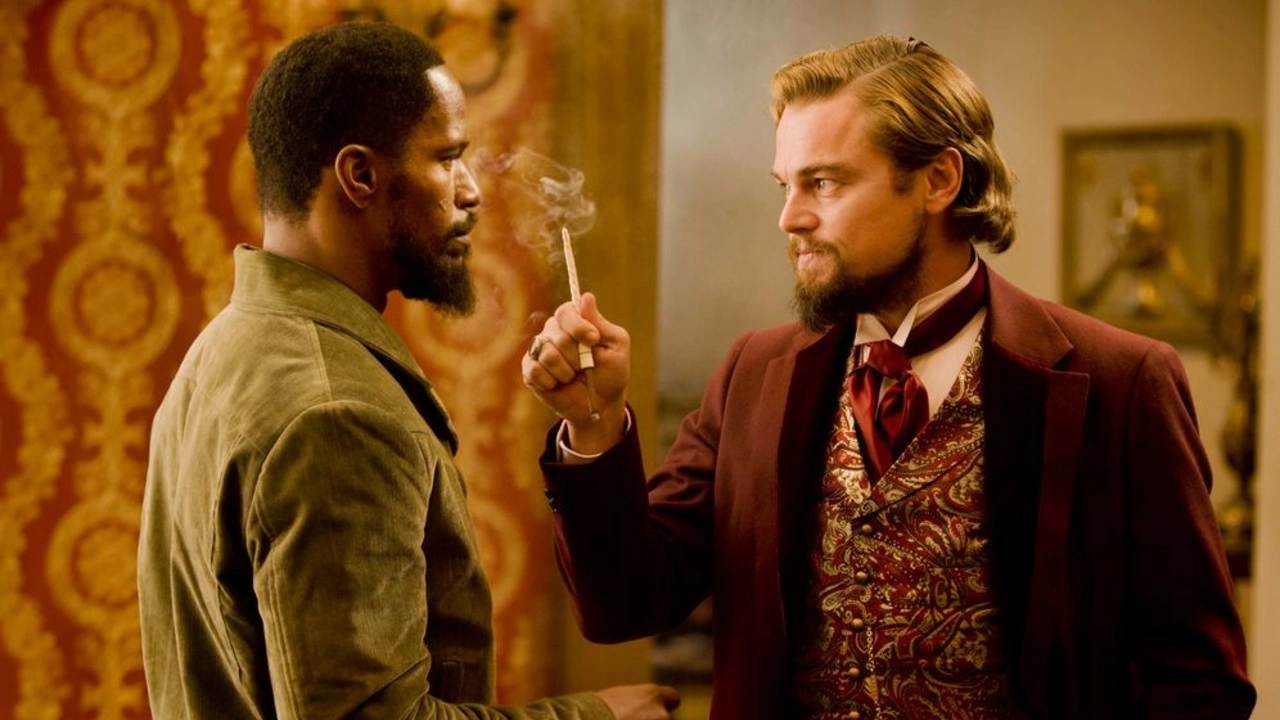
The film received critical acclaim and was a box office success, earning several Academy Award nominations and wins, including Best Original Screenplay for Tarantino and Best Supporting Actor for Waltz. DiCaprio’s performance was widely praised, with many noting it as a departure from his more sympathetic roles. His willingness to portray such a despicable character without reservation speaks volumes about his artistic integrity and dedication to storytelling.
DiCaprio’s work in “Django Unchained” challenged both the actor and the audience, forcing a confrontation with America’s dark history of slavery and the enduring legacy of racial injustice. His portrayal of Calvin Candie is a powerful reminder of the actor’s range and his ability to inhabit the skin of his characters, no matter how vile or morally complex.

As we reflect on Leonardo DiCaprio’s top movies, “Django Unchained” stands out for its bold storytelling and DiCaprio’s fearless dive into the role of the antagonist. His performance in the film is a significant highlight in his career, showcasing his capacity for dramatic versatility and his commitment to bringing complex, challenging narratives to life on the big screen.
8. “Blood Diamond” (2006): A Gripping Tale of Conflict and Conscience
“Blood Diamond,” directed by Edward Zwick, is a compelling narrative set against the backdrop of the Sierra Leone Civil War in the late 1990s. Leonardo DiCaprio stars as Danny Archer, a South African mercenary and diamond smuggler, who finds himself embroiled in a quest for a rare pink diamond that could transform his life. This film offers DiCaprio a role steeped in moral ambiguity, blending his character’s instinct for survival with an evolving conscience about the devastating impact of the conflict diamond trade.
DiCaprio’s portrayal of Archer is nuanced and compelling, capturing the complexity of a man caught between his cynical worldview and the possibility of redemption. His South African accent, which he meticulously prepared for, adds authenticity to the role, showcasing his dedication to character immersion. DiCaprio delivers a performance that is both charismatic and emotionally charged, making Archer’s journey from self-interest to a semblance of altruism believable and deeply human.
“Blood Diamond” is a gritty, action-packed film that does not shy away from depicting the brutal realities of the diamond trade and its role in fueling conflict and exploitation. The film’s strength lies in its ability to weave personal stories with broader political and ethical issues, exploring themes of family, loyalty, and the cost of greed. DiCaprio’s dynamic with co-star Djimon Hounsou, who plays Solomon Vandy, a fisherman who discovers the coveted diamond, is at the heart of the film. Their evolving relationship, from adversaries to allies, underscores the film’s message about the power of human connection and the possibility of change.
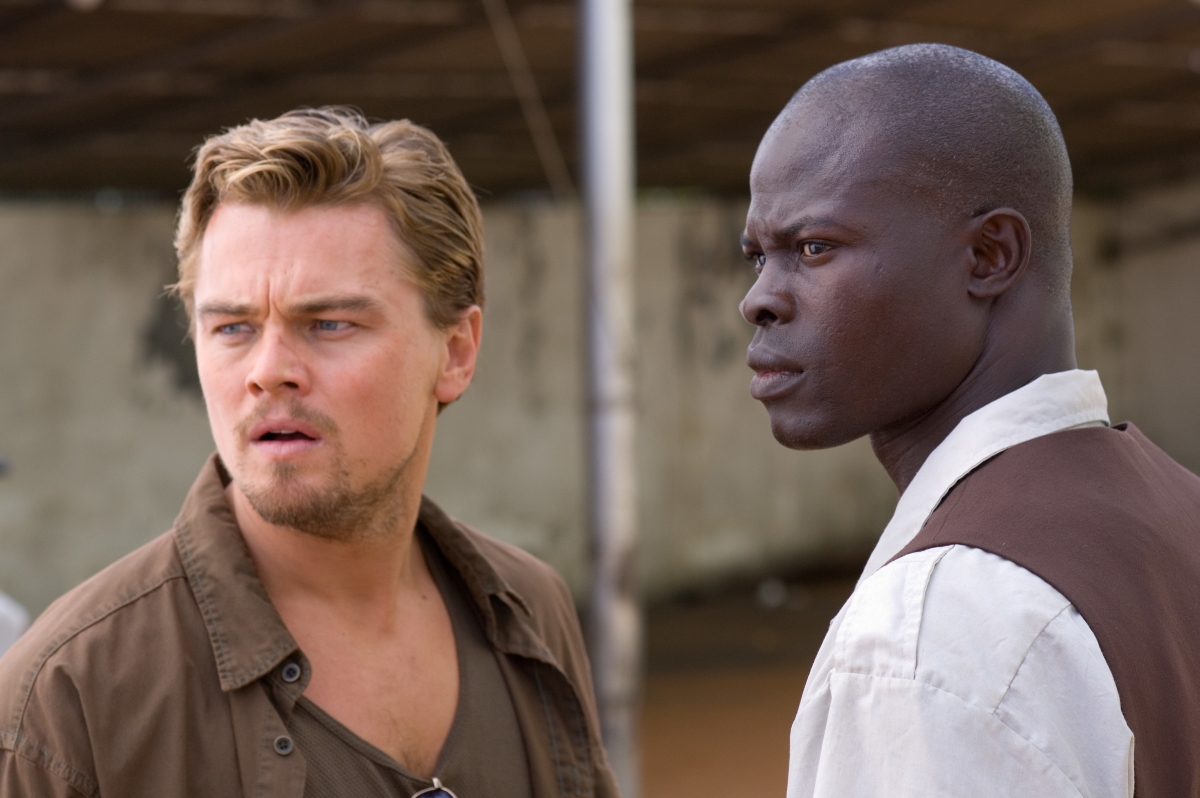
The film received critical acclaim for its storytelling, performances, and unflinching look at the dark side of the diamond industry. DiCaprio’s role in “Blood Diamond” earned him an Academy Award nomination for Best Actor, further cementing his status as one of his generation’s most versatile and committed actors. His ability to inhabit complex characters and navigate intense emotional landscapes shines through in his portrayal of Danny Archer, making it a standout performance in his career.
“Blood Diamond” not only entertains but also educates, shedding light on the ethical considerations surrounding the diamond trade and its impact on African nations plagued by conflict. Leonardo DiCaprio’s participation in the film reflects his interest in projects that address significant social and environmental issues, demonstrating his use of cinema as a platform for raising awareness and prompting dialogue.

As we continue to explore Leonardo DiCaprio’s top movies, “Blood Diamond” emerges as a pivotal work that combines intense drama with a critical examination of global injustices. Leonardo DiCaprio’s performance is a key element of the film’s success, offering a potent reminder of his talent for bringing depth and nuance to roles that explore the complexities of the human condition.
9. “Revolutionary Road” (2008): A Poignant Study of Marital Despair
“Revolutionary Road,” directed by Sam Mendes, reunites Leonardo DiCaprio with Kate Winslet, his co-star from “Titanic,” in a dramatically different context. This 2008 film, based on the novel by Richard Yates, delves into the lives of Frank and April Wheeler, a couple living in suburban Connecticut during the 1950s, whose marriage unravels under the weight of their unfulfilled dreams and societal pressures. DiCaprio’s portrayal of Frank Wheeler is a nuanced exploration of the complexities of conformity, disillusionment, and the pursuit of happiness.
Leonardo DiCaprio and Winslet deliver performances that are raw, authentic, and profoundly moving, capturing the essence of a relationship strained by existential angst and the desire for a more meaningful life. Leonardo DiCaprio’s Frank is a study in contradiction; he is both a victim and perpetrator of the very system he despises. His journey through frustration, anger, and eventual resignation is portrayed with sensitivity and depth, showcasing DiCaprio’s ability to navigate the subtleties of character and emotion.
“Revolutionary Road” is a visually arresting film, with Mendes’s direction and Roger Deakins’s cinematography creating a meticulously crafted portrait of 1950s America, juxtaposing the era’s picturesque surface with the turmoil simmering beneath. The film’s period setting is rendered with exquisite detail, yet its themes of aspiration, identity, and the confines of societal expectation remain timeless and universally resonant.
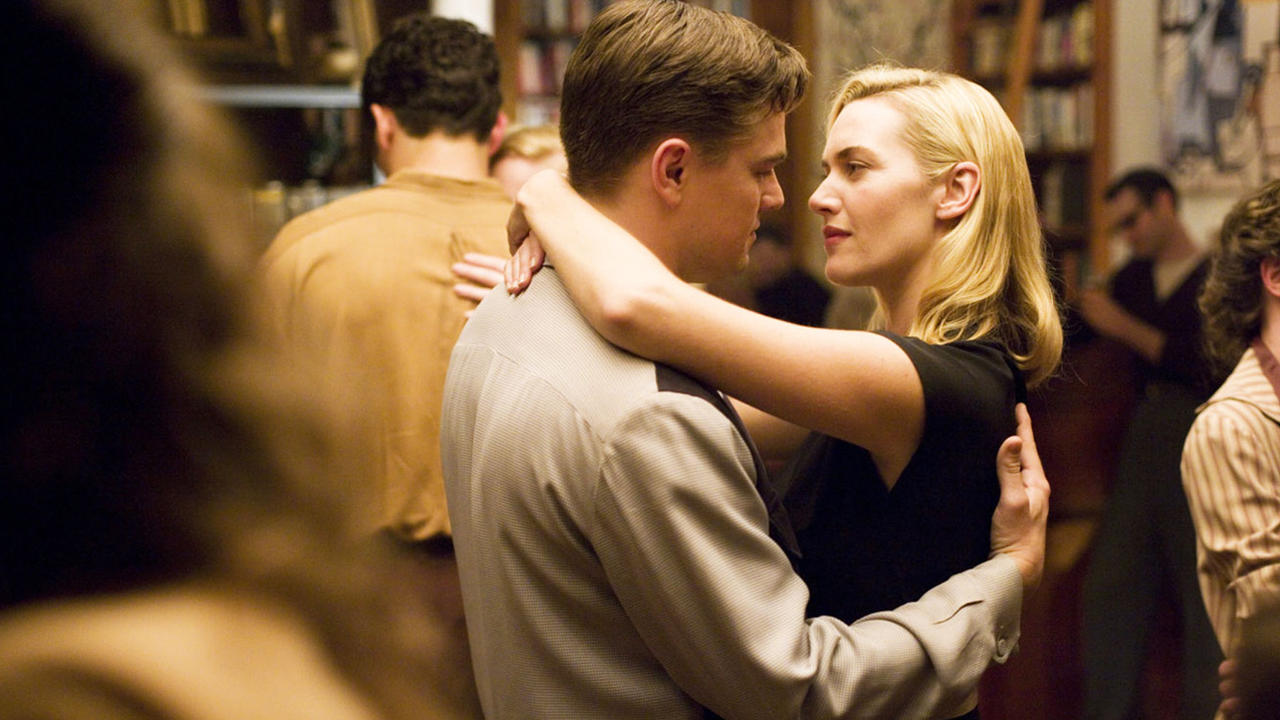
The film received critical acclaim for its unflinching look at the dark side of the American Dream and the performances of its leads. Leonardo DiCaprio’s chemistry with Winslet is palpable, grounding the film’s emotional landscape in a deeply personal narrative. Their portrayals of Frank and April Wheeler are a testament to their talents and their capacity to convey the intricacies of human relationships.
“Revolutionary Road” challenges viewers to reflect on their own lives, ambitions, and the compromises made in the name of comfort and stability. DiCaprio’s role in this film is emblematic of his career-long interest in complex, flawed characters who grapple with significant moral and existential questions. His performance is a critical element of the film’s impact, offering a compelling depiction of a man caught in the throes of societal and personal upheaval.
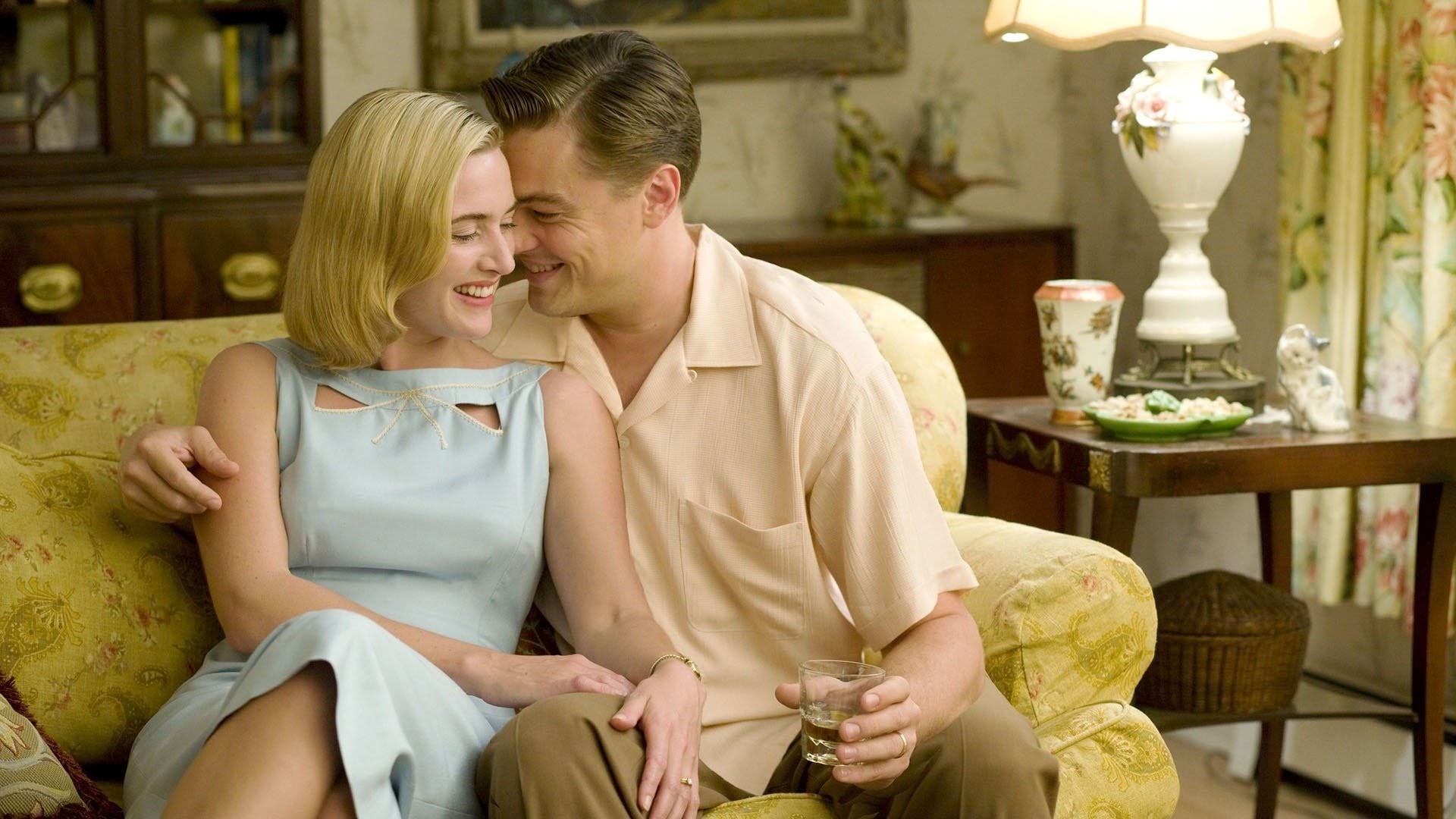
Leonardo DiCaprio and Winslet deliver performances that are raw, authentic, and profoundly moving, capturing the essence of a relationship strained by existential angst and the desire for a more meaningful life. DiCaprio’s Frank is a study in contradiction; he is both a victim and perpetrator of the very system he despises. His journey through frustration, anger, and eventual resignation is portrayed with sensitivity and depth, showcasing DiCaprio’s ability to navigate the subtleties of character and emotion.
“Revolutionary Road” is a visually arresting film, with Mendes’s direction and Roger Deakins’s cinematography creating a meticulously crafted portrait of 1950s America, juxtaposing the era’s picturesque surface with the turmoil simmering beneath. The film’s period setting is rendered with exquisite detail, yet its themes of aspiration, identity, and the confines of societal expectation remain timeless and universally resonant.

The film received critical acclaim for its unflinching look at the dark side of the American Dream and the performances of its leads. Leonardo DiCaprio’s chemistry with Winslet is palpable, grounding the film’s emotional landscape in a deeply personal narrative. Their portrayals of Frank and April Wheeler are a testament to their talents and their capacity to convey the intricacies of human relationships.
10. “The Wolf of Wall Street” (2013)
Directed by the legendary Martin Scorsese, The Wolf of Wall Street stands as a towering monument in the landscape of modern cinema, not merely for its audacious storytelling and dynamic direction but for the powerhouse performance delivered by Leonardo DiCaprio. This biographical black comedy delves deep into the life of Jordan Belfort, a stockbroker who climbs his way to immense wealth and notoriety through less-than-ethical means, only to face a dramatic fall from grace. Leonardo DiCaprio’s portrayal of Belfort is nothing short of mesmerizing, capturing the charisma, excess, and ultimately the vulnerability of a man consumed by his greed and ambition.
Adapted from Belfort’s memoir of the same name, “The Wolf of Wall Street” is a no-holds-barred exploration of the American dream gone awry, set against the backdrop of the financial boom of the late 80s and early 90s. The film is a rollercoaster ride through the highs and lows of Belfort’s life, from his early days as a penny stock trader to the head of his brokerage firm, Stratton Oakmont. Under Scorsese’s masterful direction, the movie becomes a wild, frenetic journey into the heart of American capitalism, marked by outrageous parties, lavish lifestyles, and an insatiable appetite for success at any cost.
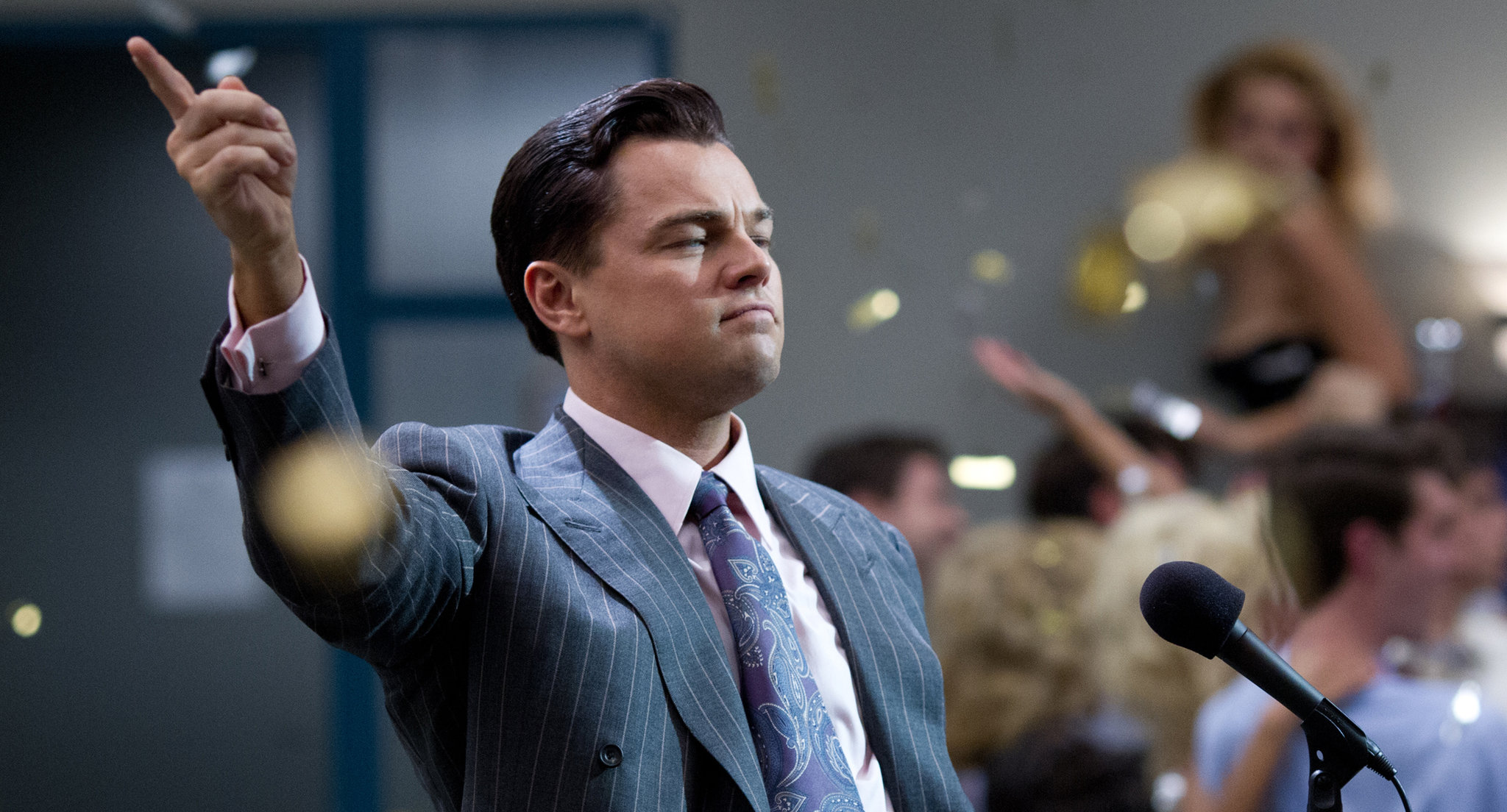
Leonardo DiCaprio’s performance is at the center of this whirlwind, embodying Belfort with a magnetic blend of slick charm and relentless ambition. He delivers a tour de force, navigating the character’s complex emotional landscape with precision and depth. Leonardo DiCaprio’s Belfort is at once despicable and strangely sympathetic, a testament to the actor’s skill in portraying multifaceted characters. His dynamic presence commands every scene, drawing the audience into Belfort’s world of excess and euphoria while also exposing the moral and emotional bankruptcy that lies beneath.

The film’s narrative is punctuated by moments of high comedy and dark drama, a testament to Scorsese’s ability to balance tone and genre with ease. The supporting cast, including Jonah Hill, Margot Robbie, and Kyle Chandler, deliver stellar performances, but it is Leonardo DiCaprio who anchors the film’s moral and emotional core. His collaboration with Scorsese reaches new heights in “The Wolf of Wall Street,” marking their fifth project together and solidifying one of cinema’s most iconic actor-director partnerships.
In conclusion
Leonardo DiCaprio’s top movies offer a compelling insight into the evolution of one of Hollywood’s most talented and respected actors. His career is a remarkable blend of commercial success and artistic integrity, making him a defining figure in contemporary cinema. As we reflect on Leonardo DiCaprio’s body of work, it’s clear that his legacy is defined not just by the awards and accolades he has received but by the impact of his performances on audiences around the world.
Leonardo DiCaprio’s filmography is a testament to the power of storytelling, the importance of cinema as a medium for exploring the human experience, and the enduring appeal of complex, thought-provoking characters. As we reflect on DiCaprio’s body of work, it’s clear that his legacy is defined not just by the awards and accolades he has received but by the impact of his performances on audiences around the world. Leonardo DiCaprio’s filmography is a testament to the power of storytelling, the importance of cinema as a medium for exploring the human experience, and the enduring appeal of complex, thought-provoking characters.


